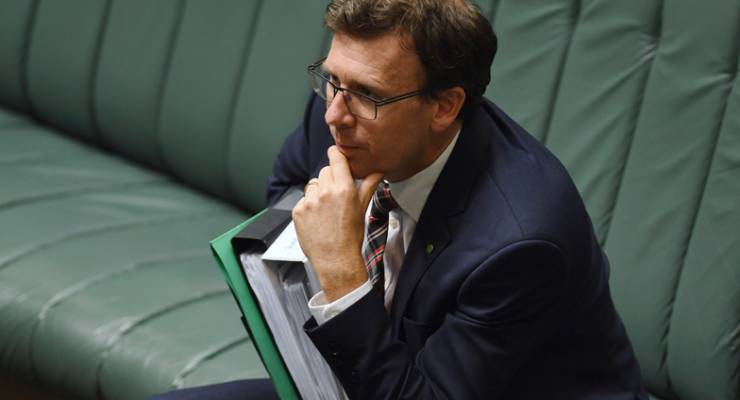
The Centrelink automated debt notices scheme is the result of years of cuts to the Department of Human Services by both Coalition and Labor governments, according to the public sector union.
A Senate committee investigating the government’s botched Centrelink debt notices system has been told this morning in its first hearing on the matter that far from resulting in a cost saving for the government as intended, the scheme has forced Centrelink staff to do more work under more pressure to resolve incorrect debt notices issued by the system.
CPSU national secretary Nadine Flood told the committee that DHS was “more focused on denying there was a problem and spinning the problem than actually dealing with it”.
Successive budget cuts, or “efficiency dividends” to the department had resulted in 5000 jobs going within the agency and meant that the decision to move to remove human oversight of the debt notices system was “absolutely based on the desire to save money”, Flood said. The result, however, meant that because of the thousands of false notices in the more than 300,000 notices issued by the agency so far, staff have been taken offline to deal with complex and difficult disputes with recipients over the false debts.
“DHS has become an expert in Band-Aid solutions as it lurches from one crisis to the next,” she said. The department was also “vicious and draconian” in its response to staff speaking out and wasn’t keen on staff input in how these systems should operate, but staff were the ones having to deal with distressed Centrelink recipients. CPSU deputy secretary Lisa Newman said that while the department had reported a decline in physical threats against staff, their own members had seen a marked increase in threats and spitting at staff in recent months.
The Australian Council of Social Service CEO Cassandra Goldie told the committee that there was a “culture of fear” around the notices scheme now, and the release of details of a Centrelink recipient to the media because that person had chosen to speak about their own issues had resulted in a “chilling effect” whereby people struggling with automated debt notices were now scared to talk about it.
Goldie said that for many of the 6,600 people who had first heard about their debt from a debt collector, they have been threatened with being taken to court, or having assets seized. The shift to sending initial notices from Centrelink via registered post should go some way to stopping people only hearing about their alleged debts by the time they’ve reached the debt collector, the committee heard.
Both CPSU and ACOSS have called for the system to be suspended, and have requested to meet with Human Services Minister Alan Tudge, but both requests have been ignored.
The committee will also hear from the Australian Taxation Office and the Department of Human Services later today.








The use of MBA babble-speek such as “efficiency dividend” indicates that some management consultant dimwit thought that it would be a spiffing idea if CentreLink could return a profit.
Prior to its privatisation that being the only goal of modern government, whether T1 or T2.
This is what you get when you save money and “increase efficiencies”? ….. Yes Minister, why not carry on regardless – refusing to admit error?
“Alan Hacker”?
DHS assumed that the ATO office data is correct. Has the ATO pursued the businesses that entered false or misleading information with any vigour?
Interesting appearance by Kathryn Campbell before the senate comittee today – looks like she can’t see anything wrong with sending out letters questioning the integrity and debts to one in five “customers” – and what that must have done on receipt?
What did she have to say about the inordinate time to get an audience with the fount of this crap – her Department – and how they’ve handled that?
Afraid of bad PR generated by the ham-fisted maladministration :- “odds of 4:1 you’ll be unnecesarily targetted, put through that needless stress and trauma”;
too lazy to check the data on which those letters were based?
….. Then there was the spectacle of the resultant attempted duck-shove, over responsibilty, to Tudge – by The Secretary? Why not just come out and admit she was following ministerial orders/directives?
“Too lazy/too deliberately understaffed to check the data …..”?
“…. she can’t see anything wrong with sending out both UNNECESSARY & ERONEOUS letters questioning the integrity and debts to one in five “customers” …”
….. Not to mention wanting records (defending their Departmental allegations of debt) from periods the suggested (by the Dept; itself) record-keeping retention period had lapsed?